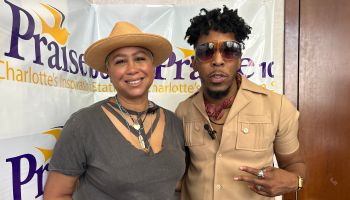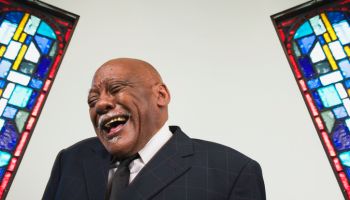Leaders of the Hip Hop Caucus, a national, nonprofit, nonpartisan organization that engages young people in urban communities in elections, policy making and community service projects led by Rev. Lennox Yearwood, hosted students from Johnson C. Smith University (JCSU) and Livingstone College on at their respective schools on Wednesday and Thursday to learn more about the clean energy and the green movement. The goal of the sessions was to mobilize students to become a part of the Caucus’ One Planet. One Voice. campaign that will launch from Charlotte on March 4 during the CIAA tournament.
One Planet. One Voice. is the Caucus’ new global green campaign that will raise the awareness of the impact of climate change, fossil fuels, pollutants and toxins on vulnerable communities and aims to uplift the voice of the people to find real solutions to these environment and economic challenges.
During the Speak Out sessions Rev. Yearwood expressed the importance of the clean energy movement. “This is not a game for me,” said Yearwood. “This is the lunch counter movement of our generation. If we don’t win this battle our children’s children will talk about how we didn’t make this happen. This is about work; it is not about flashing lights. It is about our existence.”
This fact was echoed by Urban League of the Central Carolinas President Patrick Graham. Graham told students at JCSU that he grew up in a community in New York that was a few blocks away from a railroad track, incinerator and sewer treatment plant. The women and men in his neighborhood, which were populated predominately by African American and Latino women and men, had some of the highest incidences of cancer, said Graham.
And his community, says Yearwood, was not an anomaly. According to a publication produced by the Caucus, three of the four deadliest health effects in the U.S. are all linked to the environmental causes like smog and air pollution, and have an overwhelming impact communities of color and low-income communities.
“[Our communities] are hurting because of health,” said Yearwood. “Our mothers are getting cancer … our cousins and brothers are getting asthma. We need jobs. We need you to mobilize the community.”
At the end of the night, students felt educated and were excited about the opportunity to work with the Caucus to empower communities of color and low-income communities to take control of their destinies.
















